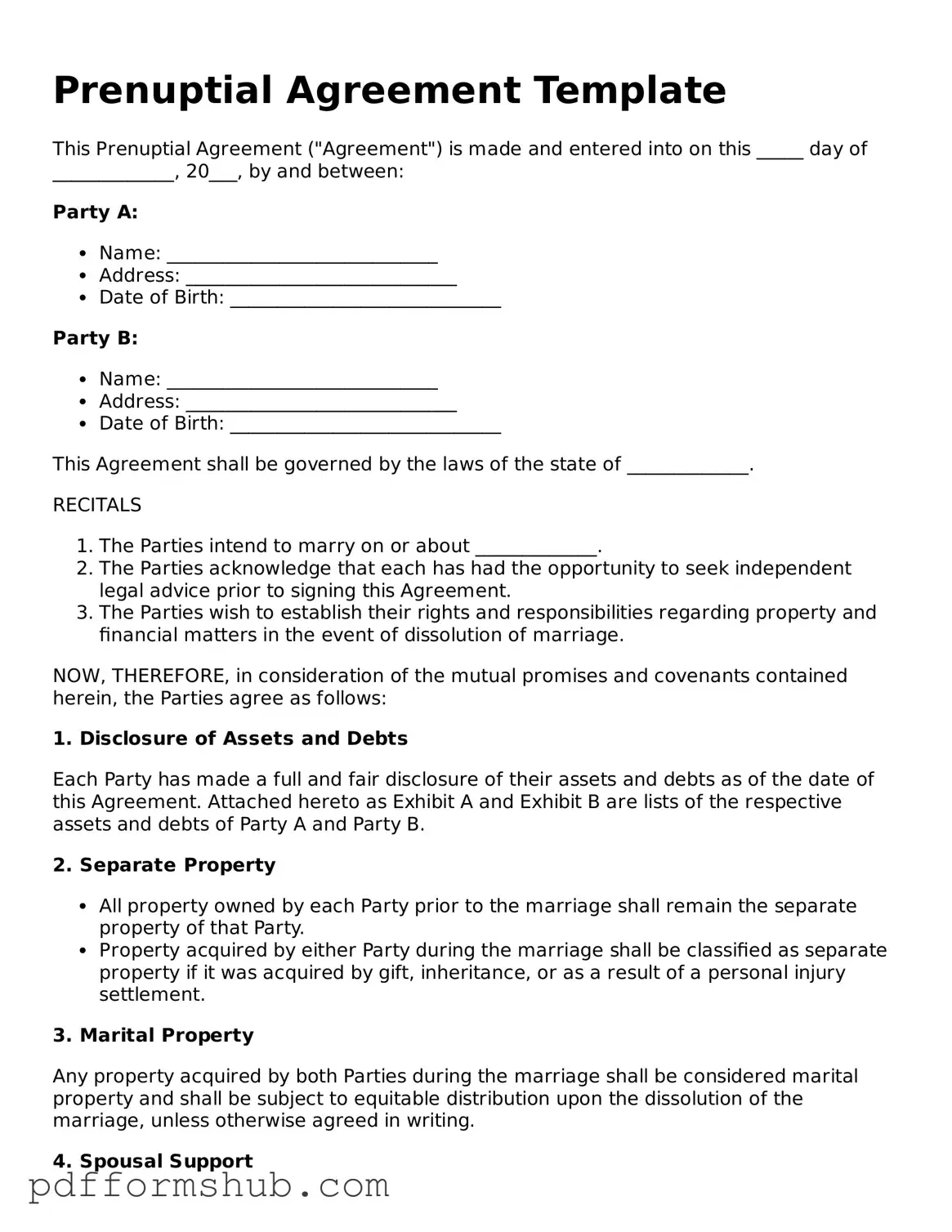Valid Prenuptial Agreement Form
A Prenuptial Agreement is a legal document that couples create before marriage to outline the division of assets and financial responsibilities in the event of a divorce or separation. This agreement helps both partners clarify their rights and expectations, fostering open communication about financial matters. To get started on securing your future, fill out the form by clicking the button below.
Customize Form

Valid Prenuptial Agreement Form
Customize Form

Customize Form
or
Free PDF Form
Short deadline? Complete this form now
Complete Prenuptial Agreement online without printing hassles.